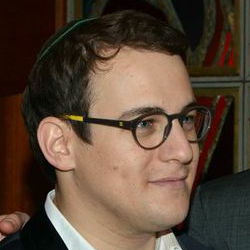 SPONSORED: Ensemble. Melting Rhapsody - Malcolm Miller enjoys Jack Liebeck and Danny Driver's 'Hebrew Melody' recital, plus a recital by David Aaron Carpenter.
SPONSORED: Ensemble. Melting Rhapsody - Malcolm Miller enjoys Jack Liebeck and Danny Driver's 'Hebrew Melody' recital, plus a recital by David Aaron Carpenter.
All sponsored features >>
- Alfred Janson
- Liana Alexandres asuli Isakadze
- Jedermann
- Deutsche Grammophon GmbH
- Wolf-Ferrari
- Andreas Ludwig Priwin
- Dinuk Wijeratne: Two Pop Songs on Antique Poems
- Vaughan Williams: Full fathom five
 FEEDBACK: She said WHAT? Read what people think about our Classical Music Daily features, and have your say!
FEEDBACK: She said WHAT? Read what people think about our Classical Music Daily features, and have your say!
Eugene Sârbu
Romanian violinist Eugene Sârbu was born in Pietrari, Dâmbovița, Muntenia on 6 September 1950. He studied initially with his father, then at the Bucharest Conservatory, with Robert Soetens in Paris and with Ivan Galamian at the Curtis Institute and at Juilliard in the USA. He took additional lessons with Eugene Ormandy, Ruggiero Ricci and Nathan Milstein.
He won several competitions and had an international career as a soloist with his 1729 Stradivari. Einojuhani Rautavaara's Violin Concerto was dedicated to him, and he gave the first performance of this and other works. His recital partner was his sister, the pianist Carmina Sârbu. Based in London UK, he also directed performances from the violin, and from 1982 was the European Master Orchestra's soloist and conductor.
When Romanian dictator Nicolae Ceaușescu was overthrown in 1989, Sârbu gave a series of recitals around the world in aid of his country of birth. In 1997 he became honorary director of the Romanian National Radio Orchestra. He was also a patron of the Romanian charity Fără.
Eugene Sârbu died in a private London hospital in the UK on 21 July 2024, aged seventy-three, following a more-than-two-year illness.

